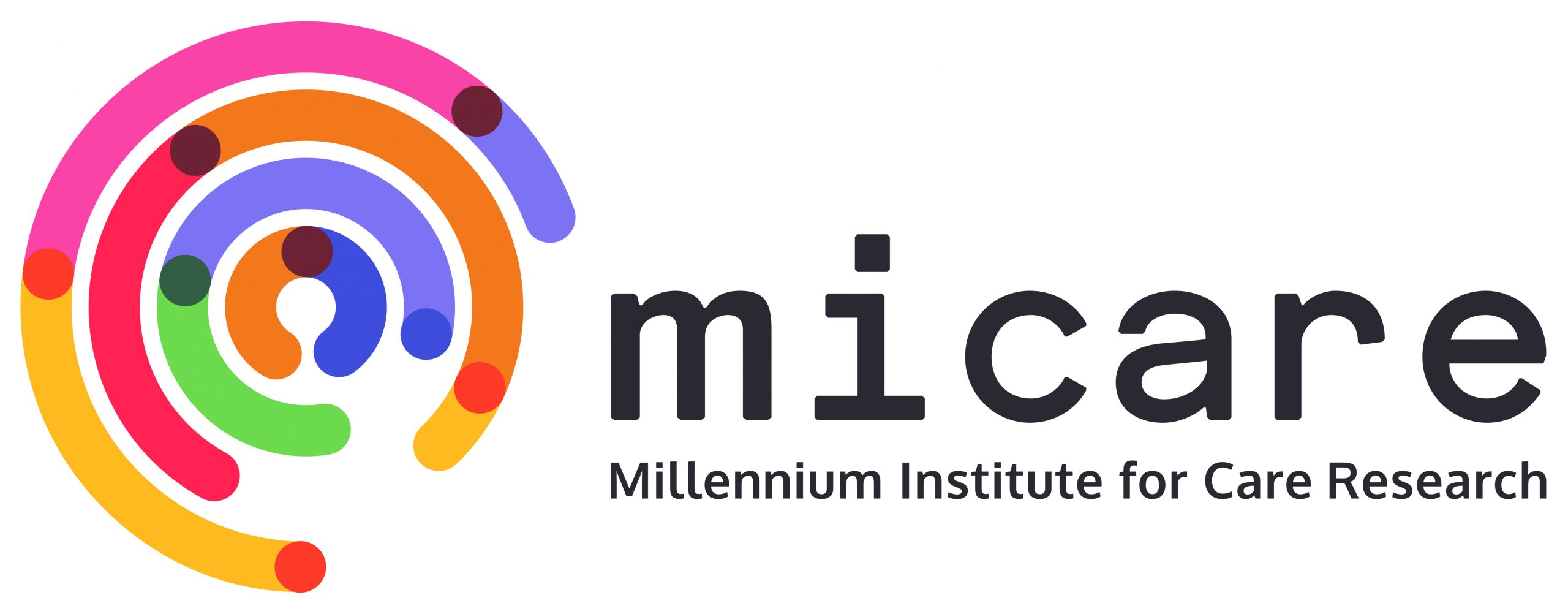Carolina Lucero (42) is a woman with multiple interests. As well as being an Expert by Experience at the Millenium Institute for Care Research, she has worked for the last 9 years as a school playground supervisor assistant in Viña del Mar. She is also an Easy-to-Read validator, a director at Líderes con Mil Capacidades, and a researcher on accessibility and inclusion.
In her role as a researcher, Carolina collaborates in various research projects led by MICARE’s researcher Vanessa Vega at Pontificia Universidad Católica de Valparaíso.
On top of that, in her spare time Carolina likes taking part in sport activities organized by Fundación Miradas Compartidas. The ones that she likes the most are Zumba, basketball, paddle tennis and swimming.
As an Expert by Experience, Carolina has been the voice of people with intellectual disability on various occasions, expressing the needs of this community in an attempt to break the long lasting tradition where professionals or family members speak out for them.
Last October, we talked to Carolina about the barriers that people with intellectual disability face and the importance of respecting their decisions in their way towards autonomy.
Why is it important to talk about adulthood and intellectual disability?
Because there are people that think that adults with intellectual disabilities are always children and it’s not like that. I don’t want to be treated like a child, because we aren’t children. We find it difficult to do certain things and we need support, but we are adults with rights, opinions and a will to be independent.
It’s also important to show what intellectual disability means. Some people think that it’s a kind of illness, and that’s not true. Intellectual disability is a neurodevelopmental condition, which does not limit us to live like adults, we can work, live independently, we only need to have adequate support.

How can you tell that others see people with intellectual disability always as children?
In the way they treat us. For instance, some parents do everything for their children or make decisions for them. There are adult people with intellectual disabilities who like someone and their parents don’t let them have a relationship, or don’t let them go out with someone, so they have to do it behind their backs.
Why do you think this happens?
Parents don’t let their adult children with intellectual disabilities to be independent, because sometimes they think we are not able to work, that we are virtually not able to do anything.
I think that there’s a lack of trust in our abilities, and that people think we don’t understand what they are trying to tell us. I understand they do it not because they are mean, but because they don’t know. That’s why I think it’s important to bring this message to the professionals and parents, we want to be treated like adults. We want everybody to know that we want to be asked for our opinion, how we would like our things to be done. For example, I’ve seen many birthday parties decorated with children’s decorations instead of asking the person what they preferred, perhaps they would have rather hung out with friends.

What do you value the most about adulthood as a person with intellectual disability?
One of the most important things for me is to be able to work. People with intellectual disabilities have abilities and it is important that we have the opportunity to earn a living to buy the things we want, to travel, to save for our own home.
Would you like to live on your own?
Yes, I would like to live on my own. Rather than living alone, I would like to get married, to live with my boyfriend in our own home. I would like to be independent, but also there are some people who don’t want to live independently and that needs to be respected as well.
What makes you feel independent?
When I go to the supermarket and I do the shopping. When I help with the bills, when I commute on my own. Above all, when I make my own decisions about what I want to do, where I want to go, with who and when nobody else chooses for me.
How was your experience from being an adolescent to becoming an adult?
It was difficult for me because I wanted to work and hang out with friends, but at home they didn’t trust I was able to do it. I was 18 and I still was going to school on the school van, and that made me feel uncomfortable. But when I arrived at Escuela Juan Sandoval they told me that the first thing my family needed to learn was how to let me be more independent. That’s why I feel that some parents need training on how to trust their children’s abilities.
How did it feel when you were given more liberties and started to trust in your autonomy?
It felt good, I was confident in myself. I made sure I was always back home on time so they could trust in me. It was a long process and in general I think that should involve talks with both parents and their children with disabilities.
What is your final message for the people reading this interview?
If adults with intellectual disabilities want to work or to be independent, they should let them, respect their decisions, their tastes, their privacy.





